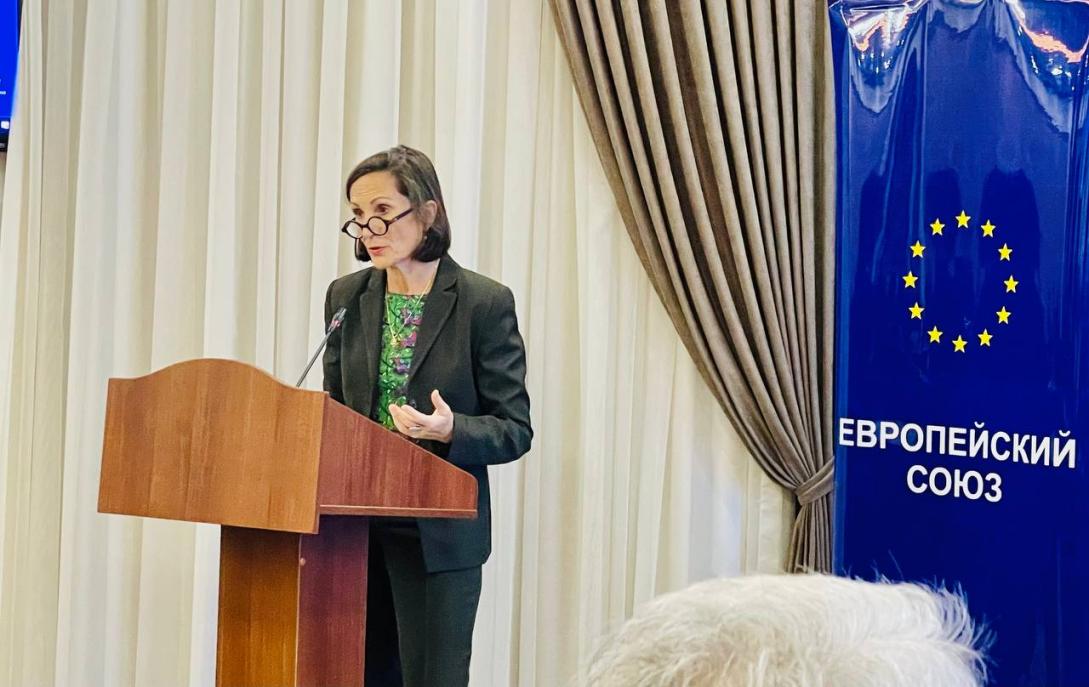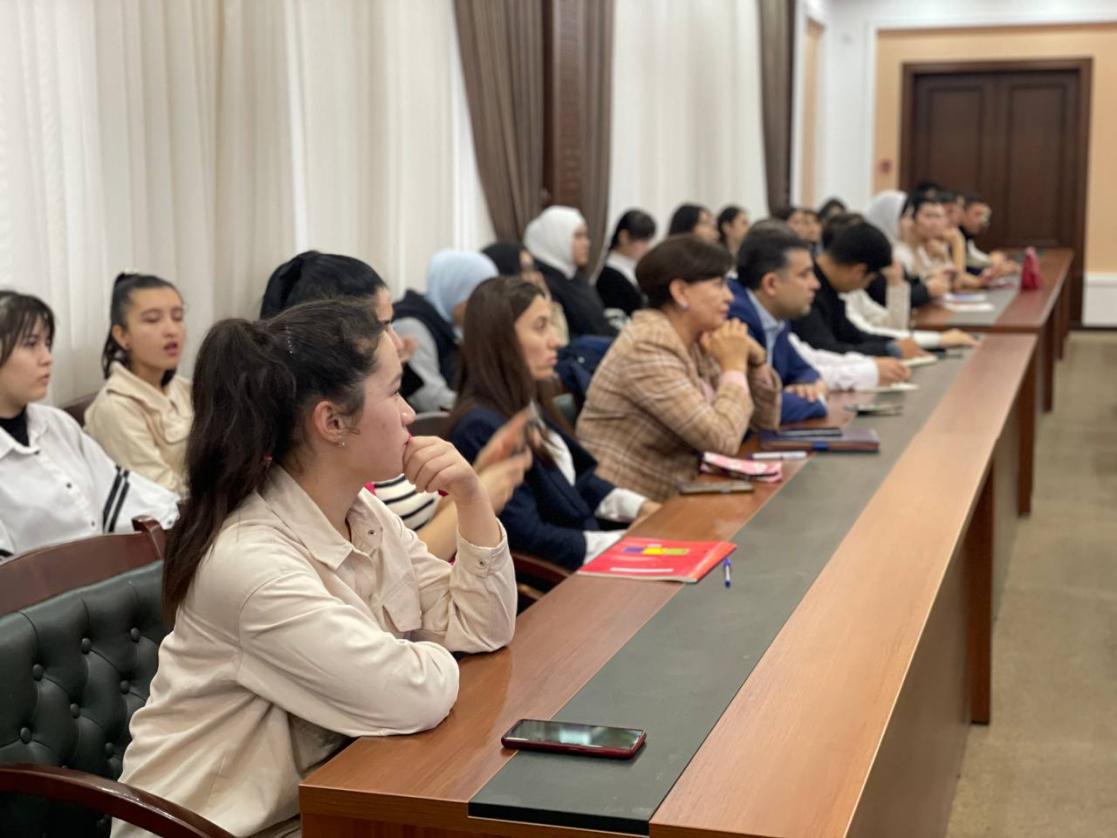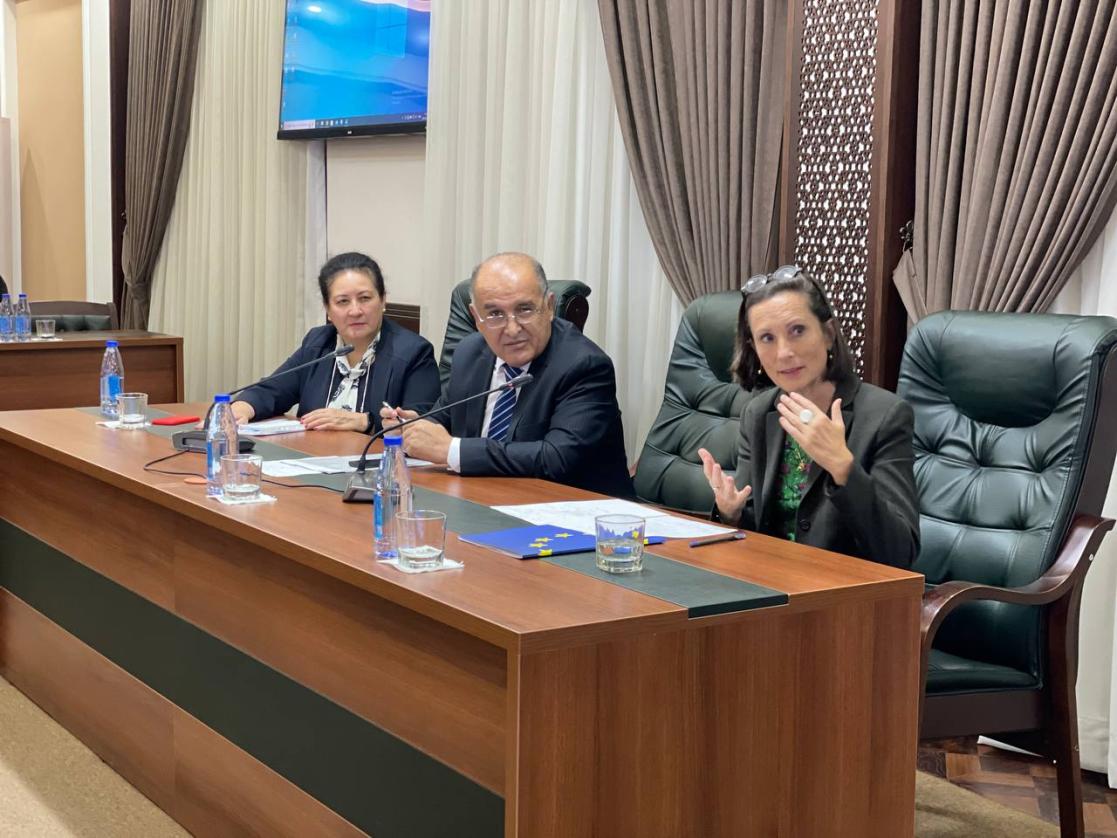Climate diplomacy for our planet: Ambassador of the European Union in Uzbekistan makes a speech at the Irrigation University

2 November 2022, Tashkent, Uzbekistan. Today, Ambassador of the European Union to Uzbekistan Charlotte Adriaen delivered a lecture on "Climate diplomacy for our planet" at the "Tashkent Institute of Irrigation and Agricultural Mechanization Engineers" National Research University. Master's student, doctoral students, as well as university lecturers attended the event.
In her welcome speech Ambassador Charlotte Adriaen noted,
“Climate change and environmental degradation are an existential threat to every human being. The situation is deteriorating much faster than we expected few years ago and we already see many concrete effects, both at global and at local level confirming that climate has already changed.”
In five days from now, the COP 27 will start in Sharm el Sheikh. COP stands for Conference of Parties. Traditionally, on the eve of this conference, the European Union holds a series of activities within the framework of the Climate Diplomacy initiative, which aims to increase the knowledge and awareness of people around the world about climate change and how everyone can locally mitigate or prevent the global consequences of climate change.

“Uzbekistan unfortunately will not be spared by this evolution. According to experts, your country face increasing desertification, drought, and decrease of biodiversity. We can already feel this in Uzbekistan. Of course, there is the Aral Sea catastrophe, which is the direct result of human mismanagement of water resources, worsened by climate change. I guess, as students in Irrigation, you are very familiar with this topic. But we also saw last year in Tashkent sand storms, which apparently never occurred before.”,
said Ambassador.
As a global challenge, climate change requires a global response. The latest scientific report from the Intergovernmental Panel on Climate Change (IPCC) on ‘Mitigation of Climate Change’ highlights that, currently, neither global ambition nor implementation is sufficient to keep the 1.5°C objective within reach. We need immediate and deep reduction of greenhouse gases across all sectors. In every sector, there are options available that can at least halve emissions by 2030.

As a sample of recommendations, the audience was demonstrated a video "10 steps to combat climate change", which describes simple and affordable actions that in our daily lives can help to reduce the carbon footprint.

The EU is committed to promote and implement ambitious environment, climate and energy policies across the world. 30% of the new EU’s financial development assistance, which targets EU partner countries, including Uzbekistan, will be allocated towards climate objectives.
Ambassador also informed that, in Uzbekistan the EU is financing many projects and programmes aiming at mitigating the consequences of environmental degradation and adapting the society towards a more sustainable, low-carbon and self-efficient economy.
“To give only one example, the EU is the biggest donor of the UN Multi-Partner Human Security Trust Fund for the Aral Sea Region in Uzbekistan. But we are also funding and providing technical assistance to many actions to support local communities facing the direct impact of climate change or to promote greener and ecological friendly agriculture production”,
marked Charlotte Adriaen.
A particular attention is paid to educational programmes, which were also presented to the audience. For example, within the framework of the European Union's Erasmus+ programme, a number of capacity–building initiatives are being implemented in higher education projects, such as innovative courses for precision agriculture NICOPA and new Master's degree programmes in sustainable bioeconomics in Uzbekistan - BioEcUz.
At the end of the meeting, the participants had the opportunity to address their questions and communicate with the Ambassador of the European Union to Uzbekistan and the coordinators of the Erasmus+ programme on climate diplomacy and other related issues.





